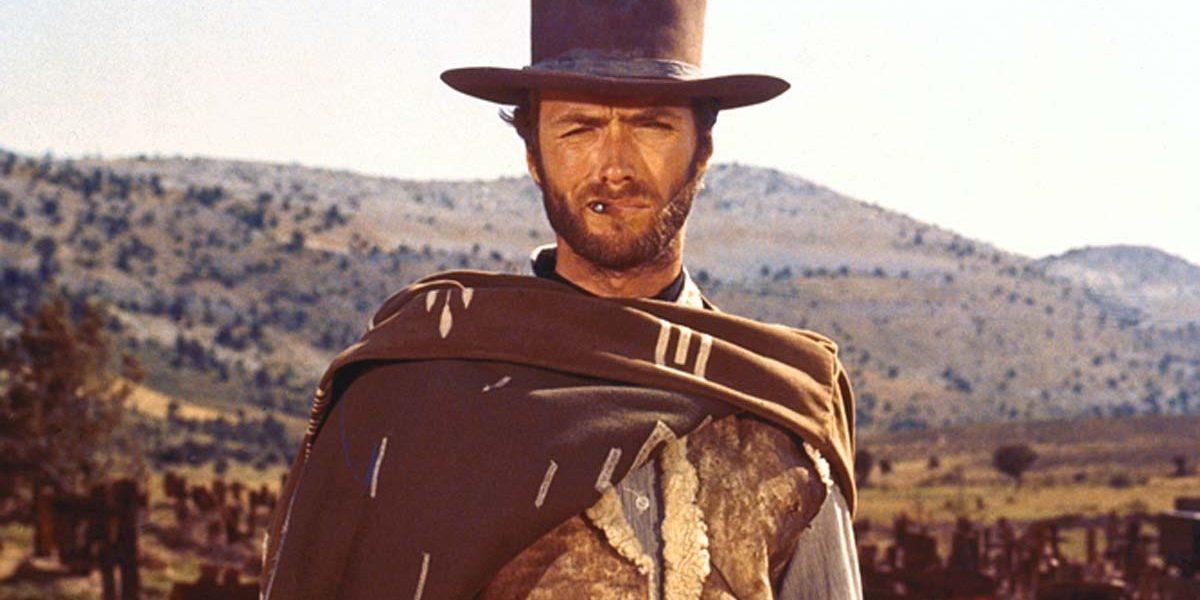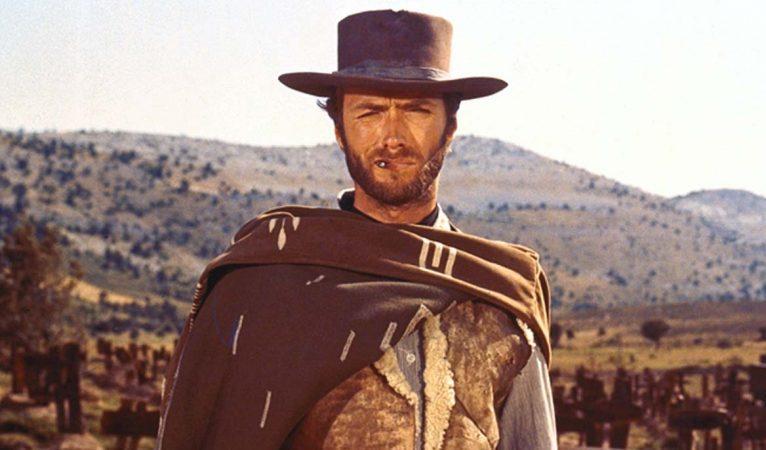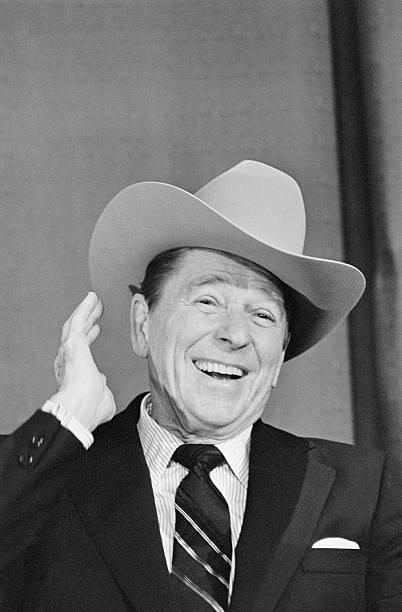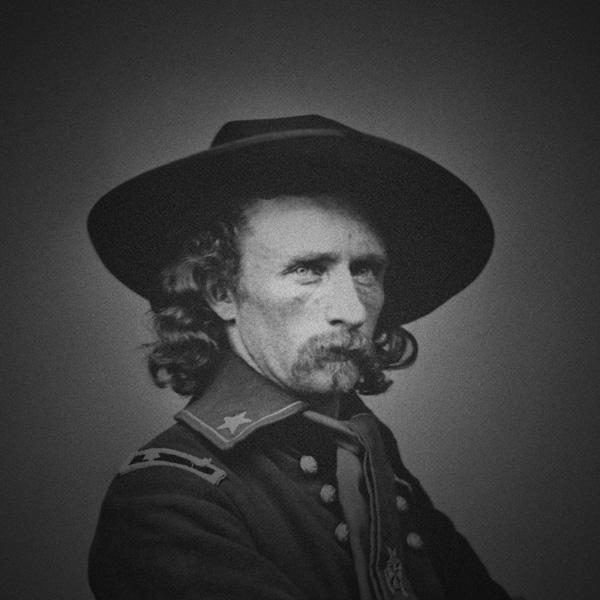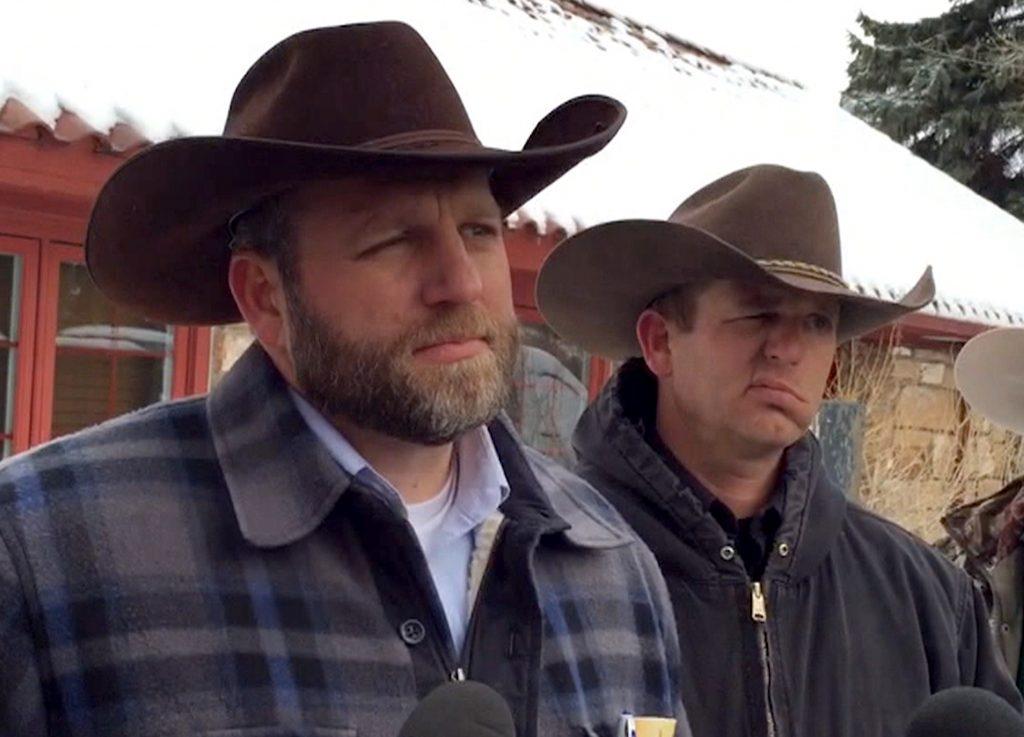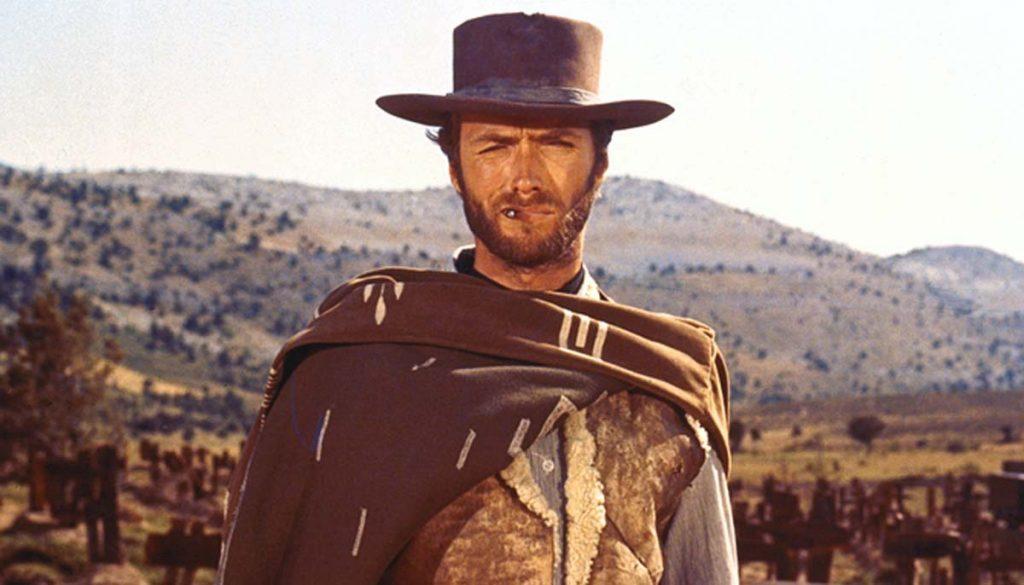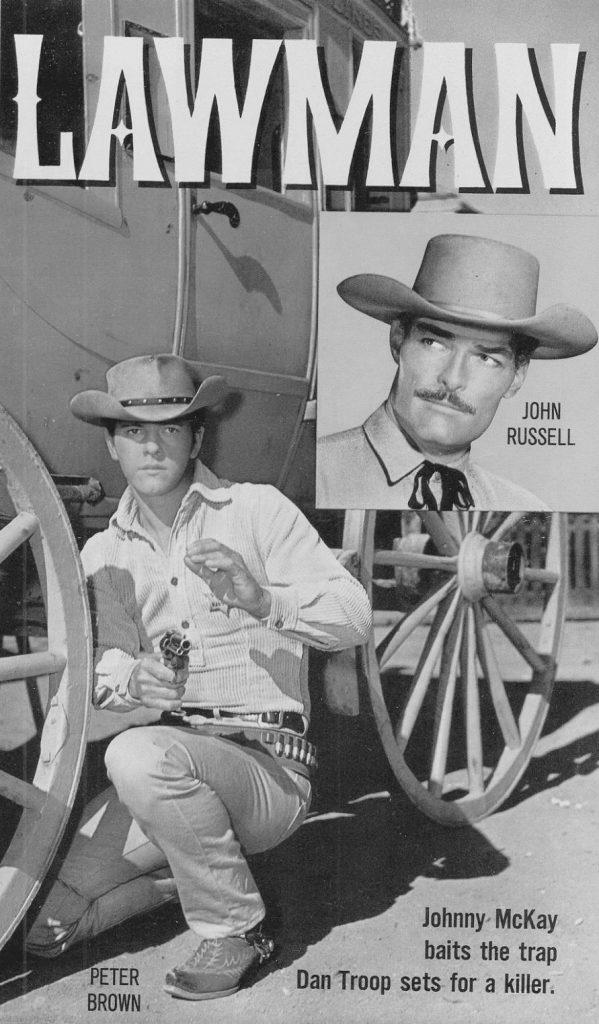Act II: The Sheriff’s Posses
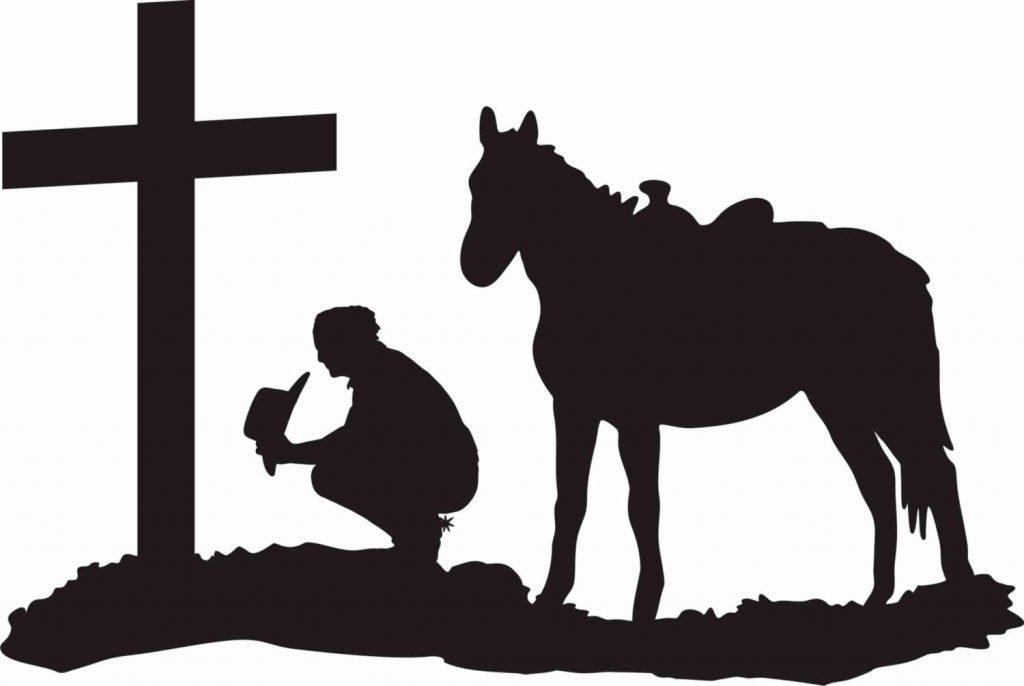
You back down or you kill me now. Go ahead. Put the bullet through me. I don’t care. I’m going to go meet the sheriff. You do as you damned well please.
LaVoy Finicum, immediately prior to his death, January 26, 2016. Finicum was spokesman for the militia “Citizens for Constitutional Freedom,” which led the armed occupation of the Malheur National Wildlife Refuge in 2015.
Act II, scene i
Setting: A town in Maricopa County, Arizona.
Sound: The rhythm of marching footsteps, cowboy boots on desert sand, growing louder, suggesting a movement of greater and greater numbers. Bands of marching citizens gather to the stage from all points of entrance, some entering from stage left, others from stage right, some arising from the audience, all walking slowly to the stage in rhythm to assemble at its base. As they find their place on an increasingly crowded stage, western border music plays, a mash-up of north-of-the-border-south-of-the-border tropes. The final members of the ensemble cast gather, the music fades, and we hear a pre-recorded voice, in rough masculine gravel:
This posse is comprised of more than 2,000 citizens who believe in Arpaio’s approach and have given their time to go where and when Arpaio needs them.
Background: At the height of his authority, in addition to presiding over county jails and the official deputies of the Maricopa County Sheriff’s Office, Sheriff Joe commands 36 different all-volunteer posse groups and as many as 3,000 posse members. Nominally supervised by the Sheriff, these few thousand citizens and residents of Maricopa County find that there is a lot to do. Their domains vary quite a lot. Some of them are innocent-sounding enough, like the community based Search and Rescue Posses, from the High Desert SAR to the New River SAR to the McDowall Mountain SAR, these are groups that help hapless, lost hikers find their way and that maintain the trails in the area. The Dog Handlers Posse and Maricopa K-9 Posse support and care for the loyal crew of coke-sniffing canines. The Animal Cruelty Enforcement Posse, in the same spirit, makes sure that all of the domestic pets and all of the strays of the county are treated nicely.
Many of the Maricopa County retirement communities attract, it seems, a horsey crowd, since a lot of these developments have “mounted” posses. There’s the Queen’s Creek Mounted Posse and the Southside Mounted Posse, the Westside Mounted Posse and the Rio Salado Mounted Posse, just to name a small handful. These posses participate in local equestrian events and strut the boulevard in holiday parades, and one wonders how many of them are inspired by something that happened that one time at the OK corral. Another cluster of posses takes on the dutiful task of community service. Perhaps it was the Youth Education Posse that marched through the neighborhoods of suburban Scottsdale, carrying heavy satchels of drug addiction literature, knocking door-to-door to hand out information on youth drug addiction. This determined effort, after dozens of students at Saguaro High School had been shooting heroin in the locker rooms while the principal wasn’t looking. Such is the good work of the Maricopa County Posse program, good-citizen-boy-scout-stuff, mostly.
But then there is the “eyes and ears” crowd. These are the folks who want to make sure that no intruders enter their community, who offer vacation patrols to their neighbors, but who also live to report suspicious activity. These kinds of posses permeate Maricopa County’s neighborhoods, gated communities, planned developments and retirement communities. There is the Litchfield Posse and the Dreamland Villa Posse, the Desert Foothills Posse, the Gila Bend Posse, and the Fountain Hill Posse. Anyone can join, including Ava Arpaio, Sheriff Joe’s wife.
And then there is the armed militia crowd. Those guys, who form the Tactical Support Posse or the Special Forces Posse, help Maricopa County’s Special Weapons and Tactic Division participate in live raids. The Cold Case Posse worked to prove the racist birther theory that President Barack Obama was not born in the United States.
The Maricopa County website offers some general criteria for joining a posse. You must be 18. Have a driver’s license, be in good health. “A person cannot have been convicted of any felonies, have any misdemeanor convictions in the last 12 months or a record of improper personal conduct, which may affect their suitability for assisting law enforcement.” This last bit about improper and suitable conduct proves difficult to evaluate and even more difficult to monitor. The posse program has had its share of public relations problems. Like the time when a handful of possified, deputized retirees took part in a prostitution sting and left behind handfuls of photographic evidence, depicting, apparently…a few handfuls of posse.
Or the many times when “the eyes and ears” of the Chaparral Posse, or the Buckeye Hills Posse, or the New River Posse, not quite fully versed in the fine print of the civil rights act, stopped brown people randomly in neighborhoods and at stoplights, a practice they shared with the real guys wearing the actual star of the Maricopa County Sheriff’s Office. The exact arrangement between MCSO and the posses remains unclear, the precise terms of understanding have never surfaced. A Smoking Gun? Sheriff Joe never had much use for one of those.
Act II, scene ii
Setting: Generic television studio. Two cameras. One left, one right.
Stage Direction: Sheriff Joe, in suit, sits at a nondescript news desk, hands folded. A Reporter sits beside him, also with hands folded. They both face forward, as if at a camera. A beat. Another beat. Finally, the Reporter turns to Sheriff Joe.
Reporter: When people around the country hear the word “posse,” they think of an undisciplined gang of guys, without supervision, endangering the community rather than protecting it.
Sheriff Joe (still looking at camera): Maybe they’ve watched too many old cowboy movies, but the concept is the same. Instead of going after horse thieves, we are going after car thieves and anybody else who violates the law.
Reporter: Jay walkers? What about, you know, floosies?
Sheriff Joe: The law is the law and lassos are lassos.
Reporter: Well said.
Stage Direction: Wind machine blows sagebrush onto the stage. Two cut-out, wooden horses with mounted rodeo riders enter, on wheels, one stage left, one stage right, rearing up on hind legs. Sounds of whinnying.
Television Reporter: How old are you these days, Joe?
Sheriff Joe: Come December, I’ll be two thousand and fifteen. In human years. That’s fourteen thousand, one hundred and five, in dog years.
Television Reporter: Intact, I suspect?
Sheriff Joe: 100%.
Stage Direction: Sound of barking, braying dogs. A rear screen projection begins behind Sheriff Joe and the Reporter. Grainy, black and white film footage, filmed in fast motion from the front of a car hurtling down a stretch of blacktop in the desert. Sheriff Joe and the Reporter thus appear to be traveling down the road at extremely high speed. Sound of pedal steel guitar, loud and heavily distorted to the point of howling.
Reporter (shouting): Where are we going, Joe?
Sheriff Joe (shouting): Never you mind. You hush up.
Stage Direction: Sound of screeching tires. Sound of an explosion. Sudden blackout. Silence. A spotlight at the front of the stage. There, Clint Eastwood half sits, half stands against a barstool, arms folded, and begins narrating the scene.
Eastwood: The Cowboy Messiah. A type. The lone lawman who saves the town. Sometimes he wanders in as your standard white hat. Gary Cooper in High Noon, for example. Sometimes he–it’s almost always a he, you know–wears a different sort of hat. It’s still white, but with more edge. Here’s the lone lawman who disobeys the law, who saves us from the disaster that our by-the-book routine cannot defeat. He’s the good cop cop driven batshit-rogue by the baddies and by the softies who coddle them, including their mothers. Including their wives.. He throws the book on the fire. He employs ‘untraditional’ methods. ‘Popeye Doyle’ in The French Connection is one. Or like me doing my ‘Harry Calahann’ in Dirty Harry. Or ‘Sheriff Joe’ in In the Heat of Maricopa County. Or ‘The Attorney General’ in Mr. Barr Goes to Washington. He also comes in a outraged-citizen-turned-vigilante edition. Think ‘Travis Bickle’ in Taxi Driver.
Stage Direction: The sound of braying dogs returns, now joined by the sound of an angry crowd.
Eastwood: And what is a Messiah without followers? A Messiah has to have back up. Lesser saints who take up the mission, too. Lesser saints who may even get more enthusiastic about the mission than the Messiah himself.
Stage direction: A second spotlight comes on, across from Eastwood. Enter: Paul Penzone, the Sheriff of Maricopa County who succeeded Arpaio. In full police uniform, he likewise half sits, half stands against a barstool. Crowd noise and dogs fade out. Soft harmonica now, instead.
Eastwood: Howdy, Sheriff Paul.
Penzone: Good afternoon, Mr. Eastwood.
Eastwood: “Eastwood” is my real name, you know. Bet you didn’t know that. Not a Hollywood gimmick. Guess you could say, ‘I was born this way. Born to play me.’ Heh, heh. But back to our story. By 2016, old Sheriff Joe had worn out his welcome. The citizens of Maricopa County voted in one Paul Penzone, as their new sheriff. This new badge was brought in to clean up Sheriff Joe’s operation and bring things back to the straight and level. Sheriff Paul put together a real nice citizen’s advisory committee to help him out. Civil rights folks, attorneys, deputy sheriffs, academics, community members. The like. Lickity split, they got rid of Sheriff Joes’ concentration camp. Then Sheriff Paul and his little squad went after Sheriff Joe’s posses. Sheriff Paul closed the Cold Case Posse right away, for good. That was the group that Sheriff Joe had assembled to investigate Obama’s Hawaiian birthplace and certification. Too bad how that one turned out. Barry “caught a lucky wave,” there, I guess.

Eastwood: But some of the other ones, the immigration enforcement posses, those guys were harder to get rid of, weren’t they Paul? You had a little trouble getting rid of those guys. Turned out they had roots as deep as Sonoran mesquite. Did you know that the roots of a mesquite bush can go 150 feet straight down into the ground?
Penzone: I did not.
Eastwood: It’s a true story, Paul.
Penzone: I’m sure it is. Looking back, I have to say that pulling down Tent City was one of the proudest days of my life. What kind of sadist can even think up a circus like that?
Eastwood: One of my movies was set in a circus, Paul. Called it “Bronco Billy.” What’s wrong with a circus?
Penzone: Nothing wrong with a circus. It’s just not a law enforcement model.
Eastwood: 150 feet straight down into the ground. Hard to dig all that up.
Penzone: Very hard. I agree. Attitudes get baked in. “Immigration Enforcement.” I admit, those have been the hardest to crack. They just don’t want to let go of the uniform, or the shiny fake badges, and yeah, the guns either. Oh, and the adrenaline. They think that’s a lot of fun.
Eastwood: Backroom arms dealing now and then, too, I hear.
Penzone: Completely unacceptable. These individuals have absolutely no business pretending to be law enforcement officers. But Sheriff Joe was okay with it, so, there it is. Gotta deal with them. You understand they present a real danger to my officers, right? Imagine if a really difficult situation comes up. There’s a lot of confusion, say. An active shooter, say. How do you know the real deputies from the fake ones? You’re begging for trouble. These guys play around, think they’re tough, don’t know what they are doing, and don’t care about blurring the lines. They think it’s fine.
Eastwood: 150 feet. Straight down.
Penzone: They call themselves posses. Well, they act like they’re in some sort of cult, as far as I’m concerned. All of these goofball names. Tactical Support Posse. Special Forces Posse. Enforcement Support Posse. What’s what? Who’s who? Who does what? They don’t want to talk about it and I obviously I can’t make them. They won’t talk about anything. About their membership, training, fundraising, connections, accountability. All of it. It’s all a big secret.
Eastwood: It’ll stay that way, too.
Penzone: Oh?
Eastwood: Listen to a hallowed figment of the American imagination for a second, Paul. These fellows see themselves, in a way, as characters from my movies. Each one of them. Each one has a head full of gun slinging dreams. And like one of my characters, what gets a guyslike that going usually has something to do with some sort of vengeance. He takes care of the vengeance himself. He doesn’t call the police.
Penzone: They talked to Sheriff Joe. They sure talked to him. A lot.
Eastwood: Yeah, but he wasn’t really just a policeman, now was he? He was a little more than that. He was something else altogether.
Act II, scene iii
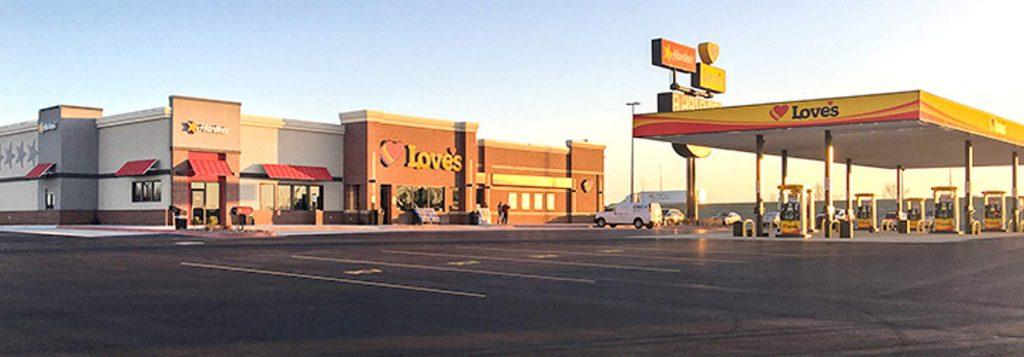
Flashback. April 12, 2005. In a squad car, two deputies, Deputy R. and Deputy G. of the Maricopa County Sheriff’s Office, pull out into traffic. The deputies have just finished another tasty lunch of frijoles and arroz con pollo at the counter inside La Tienda Latina, their regular hangout in downtown Phoenix. Before they left, Lupe, the owner, instructed her daughter, Marisol, to make sure they got some churros to go–for her favorite customers, it’s on the house, of course–and now an abundance of the pastries lay piled on a paper plate between Deputy R. and Deputy G. They are freaking delicious. The best in town. Hands down, the best. Which is saying something. The deputies have made the rounds and know what they are talking about. If you want to know where to eat, ask a cop. Not fancy, but the best for your money, ask a cop. Sounds like a joke. It isn’t.
Finishing off his second, Deputy R. sings the praises of Lupe and Marisol. Hard workers, both of them. Up before dawn, every day, to open that place. Hard to keep a small business running. And Marisol’s English is better than a lot of white kids’. It’s just true. Deputy G. agrees and adds: certainly better than a lot of Black kids. I won’t argue about that either, Deputy R answers.
The radio goes nuts. Crazy squawking. Something about Interstate 8 and a truck stop. Cars already en route. Hostage situation. Hostage? Suspect is armed.
Goddammit, that truck stop is just a couple of miles or so behind them, in the other direction. Adrenaline. Lights. Siren. Deputy R. pulls a u-y. They fly past La Tienda Latina. No matter what the speedometer says, it’s never fast enough. You won’t ever go fast enough. The radio practically rattles out of the dashboard with all the crosstalk. Deputy G. calls in to dispatch. He and Deputy R. are going to be the first on the scene and he knows it. Adrenaline. Zero to sixty. Situation is developing. Possible armed shooter holding hostages inside the truck stop. Possible? Unclear, unclear. Rounds fired? Unclear, unclear. Zero to sixty.
They’re at the edge of the truck stop’s enormous parking lot. People are running around, every direction. Somebody stumbles over somebody else. Unclear, unclear. Hostage situation inside truck stop convenience store. Deputy R. and Deputy G., out of the car, weapons drawn, sprint. So much fucking adrenaline. Inside, bald headed guy behind the counter waves with both hands toward the back. Restrooms. Restrooms. The convenience store is almost as big as the parking lot. Rows and rows and rows of truck stop shit. Run past scented trees you hang from the rearview. A kid’s game with a claw you operate and pick up a stuffed animal. For a quarter. First aid kits. First aid. Might need a lot.
Around the row of auto supplies, at the back, right at the entrance to the restrooms some skinny loner looking dude in a cowboy hat, pistol drawn, his back toward the deputies. Can’t tell if he has a shot or not. Can’t tell what he’s aiming at.
He doesn’t drop it, when ordered. He keeps aiming into the restrooms. The deputies aim at him.
Stillness. You can smell the booze and sweat on him.
He’s saying something. He’s shouting to the deputies. He’s trying to communicate. Special Forces! he screams. Special Forces. Goddamnit, I’m Special Forces! I’ve got them, got them cornered, he shouts. Who? Who have you cornered? Fucking van full of illegals, man. They were out in the lot. Fucking around. I marched them right in here, man. Right in. It’s a fucking round up. Illegals? Fuck yeah.
That’s cool, Deputy G. says back. Deputy R. shoots Deputy G. a look, confused. That’s cool. Those are the guys we were just out looking for. Deputy G. improvises, elaborates. Everybody’s looking for them. No shit? No shit. Thanks man. You guys are always putting us out of a job, man. Good work. No shit? You were looking for these guys? Well, I got them right here. Dude looks over his shoulder and smiles, for an instant, time enough for Deputy R. to do a body tackle. Dude and Deputy R. knock over a rack of tourist brochures. Deputy G. grabs the gun. And then Dude is kissing the floor. It’s already almost over. Other cops show up. It’s over. Adrenaline evaporation. God, dude stinks. When did he have a shower?
It’s all over the news. Dude is one Patrick Haab and he had a loaded .9mm Browning and he also had six men trapped in the women’s restroom at the Love’s truck stop on Interstate 8. The six men are all current employees at the Country Club at C.D. Ranch in Scottsdale. Haab was an Army reservist, apparently. Got kicked out. Some kind of mental problem. Anger management problems. Long history of. Blew up a garbage can in the hallway in junior high. Or something.
At a press briefing, Sheriff Joe praises his force. Haab is in jail. Everyone is safe, he says.
But what about the illegals, someone asks. What illegals? Sheriff Joe asks back. The illegals Haab had cornered. Where are they? We don’t know that they were illegals, Sheriff Joe says, or said at the time, back then, before he became Cowboy Messiah Joe. We can’t do that, even to illegals, especially when we don’t know their status, Sheriff Joe said, way back when, before he started taking the temperature of the nativist waters. He looks over his shoulder, real quick, at Deputy R. and Deputy G., who stand behind him. They give him nothing but blankface. That’s not the point, Sheriff Joe says, turning back around to the reporters. Even if they were illegals. You don’t go around pulling guns on people. Being illegal is not a serious crime, he says. My officers responded appropriately. He looks back over his shoulder, once more.
Turns out, a lot of folks in Arizona disagree about that. Sheriff Joe’s boys made a huge mistake, they say. They shouldn’t have arrested Haab. The deputies should have picked up on Haab’s tip and investigated the illegals. Have a good long look at their papers. Which the deputies admit they did not do. What about criminal records? Only the most minimal information was gleaned from the men. Residence. Place of employment. Witness statements. Nothing about their immigration status. They could be anywhere by now. Haab is the hero, here, the talk radio says, and listeners agree. Snail mail, emails, letters to the editor pour in. Almost overnight, tens of thousands of dollars for his legal defense. They jailed a good man, a protector. This is what you get for being a patriot these days. This is what you get for loving America. The District Attorney declines prosecution. Publicly hints at those headcase problems–combat trauma, say the military shrinks–but Haab is not evaluated for competency to stand trial. The District Attorney doesn’t need Haab to know which way the political wind is blowing. DA is up for re-election. So is Sheriff Joe. In these jobs, you’re always up for re-election, one way or another.
The lesson: Haab didn’t have a name for it then, for who he was, but we do.
Sheriff Joe reviews the whole, developing situation. Lifts his nose to those starry desert skies, sniffs once or twice, and breathes in the gathering winds.
He pulls his own big, metaphoric u-turn, presses down on the pedal, and he’s off, from zero to ninety plus, plus, plus.
He tells himself that he knows just how far he’s going to take this.
